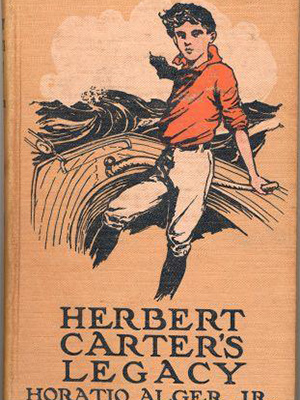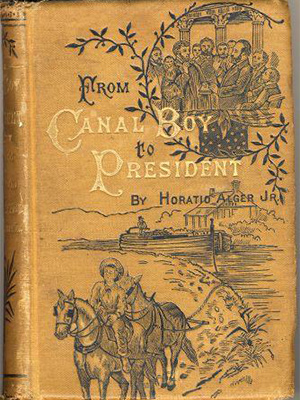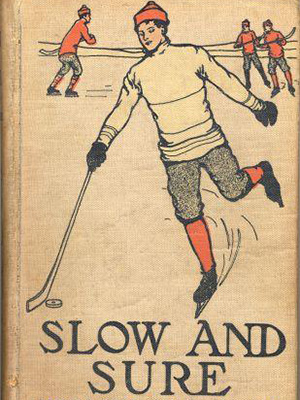Horatio Alger, Jr.
Alger’s heroes are working-class adolescent boys who, through hard work, honest dealings, and temperance, rise to live in bourgeois comfort. Herbert Carter’s Legacy (1875) follows one such boy as he struggles to make ends meet until he can overcome his financial straits. Midway through the novel, Alger writes, “To be willing to work, and yet to be unable to find an opportunity, was certainly a hardship.” And indeed, in Alger’s novels, each hero’s metaphysical crisis comes from not being able to use his able body, rather than from being without money.
Alger’s villains, rascals and knaves are pointlessly, infuriatingly wealthy, and his women are either dutiful mothers or triumphantly conscienceless manipulators. They are, in Alger’s world, non-producers.
The concept of work as its own end is hardly unique to this novelist, but he does employ it in unexpected ways. In his moralization of President James A. Garfield’s life, From Canal Boy to President, he describes the future president’s introduction to the world of work, in which a farmer offers a job to his older brother, Thomas. “‘I need help on my farm, and I guess you will suit me,’ said Mr. Conrad, though that was not his name. In fact, I don’t know his name, but that will do as well as any other” (page 12). Later, Alger writes that the meeting with Mr. Conrad did not happen at all, and that he will henceforth follow the narrative provided by Edmund Kirke. But in turning to a more reliable history, he does not invalidate the fiction that he has now admitted is fiction. That is the power of work. It is so exciting an idea that facts are secondary.
Click on the thumbnails below to see the image full size.


